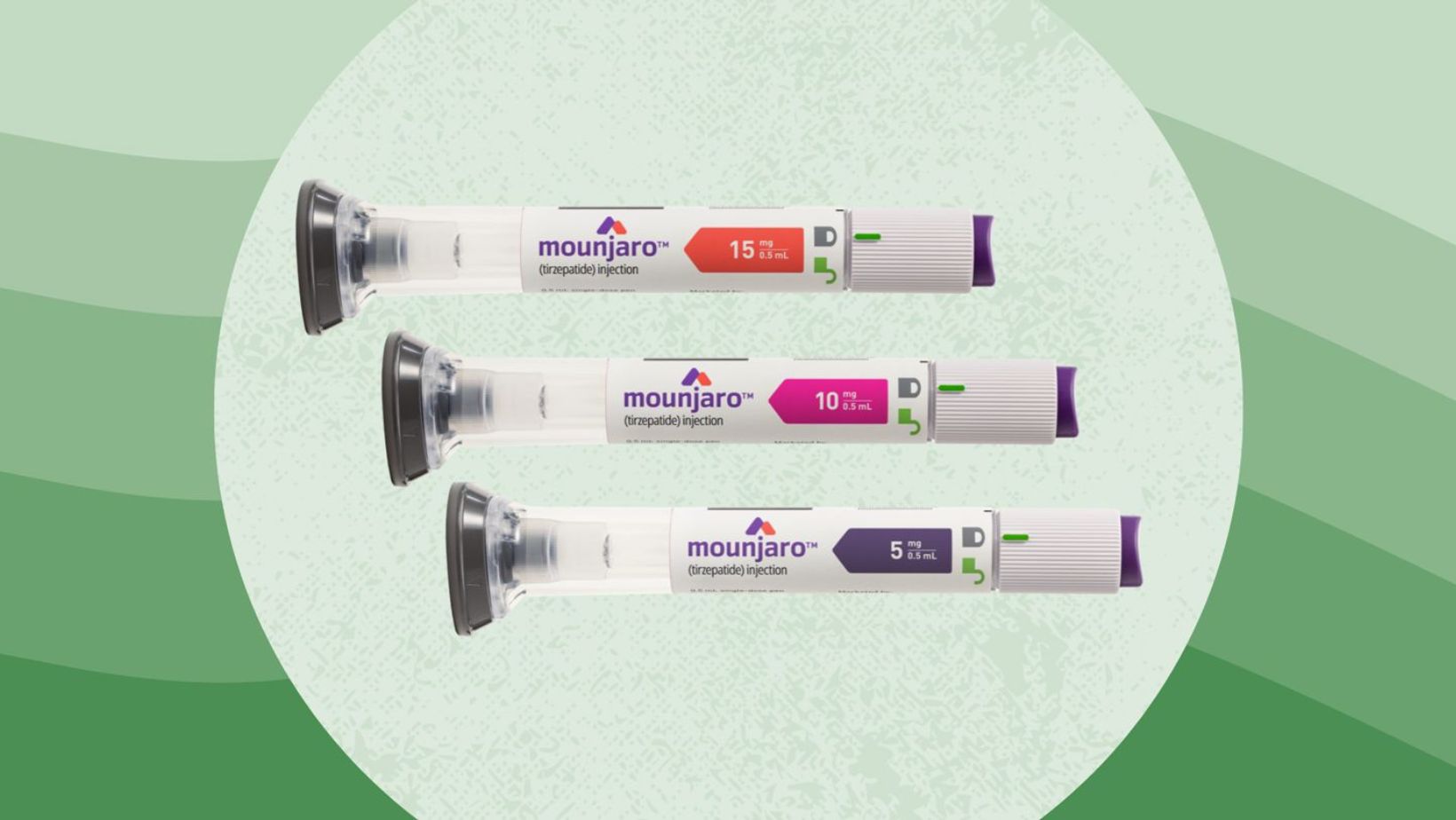Weight management continues to be a pressing concern for many people, with obesity rates rising globally. The need for effective, sustainable weight-loss solutions has led to the development of new treatments. One such innovation is tirzepatide compound, a groundbreaking medication that shows promise in the management of obesity and weight-related conditions.
 In this article, we will explore the potential of tirzepatide as a new weight management solution, its mechanism of action, benefits, and how it compares to other weight loss options.
In this article, we will explore the potential of tirzepatide as a new weight management solution, its mechanism of action, benefits, and how it compares to other weight loss options.
Table of Contents
ToggleUnderstanding Tirzepatide and Its Mechanism of Action
Tirzepatide is a novel medication developed primarily for the management of type 2 diabetes, but its potential for weight management has gained attention due to its impact on metabolic processes. It is a dual GIP and GLP-1 receptor agonist, which means it acts on two key hormones that regulate appetite, blood sugar levels, and fat metabolism.
Key Actions of Tirzepatide
- Increased Insulin Sensitivity: It helps the body use insulin more effectively, leading to better blood sugar control.
- Reduced Appetite: By acting on the GLP-1 receptor, tirzepatide promotes satiety, leading to reduced hunger and food intake.
- Slower Gastric Emptying: It slows down how quickly the stomach empties, contributing to a feeling of fullness for longer.
- Fat Metabolism: It has been shown to support better fat-burning mechanisms, leading to potential weight loss.
Tirzepatide for Weight Management
While tirzepatide was initially developed for managing type 2 diabetes, clinical trials have demonstrated its impressive effectiveness in helping patients lose weight. The medication works not just by controlling blood sugar levels but also by addressing the underlying causes of obesity, such as insulin resistance, high hunger levels, and metabolic dysfunction.
Benefits of Tirzepatide for Weight Loss
- Significant Weight Loss: In clinical studies, patients taking tirzepatide experienced more substantial weight loss compared to those on standard treatments. Some studies report average losses of up to 20-25% of body weight in certain individuals.
- Improved Insulin Sensitivity: Tirzepatide’s dual action of enhancing insulin sensitivity and reducing blood sugar levels can improve metabolic health, which is often impaired in individuals with obesity.
- Better Appetite Control: Its appetite-suppressing effects help reduce cravings and emotional eating, supporting healthier eating habits.
- Sustained Results: Because tirzepatide addresses multiple factors contributing to weight gain, it has the potential for long-term weight maintenance when combined with lifestyle changes.
Clinical Evidence Supporting Tirzepatide
Several large-scale clinical trials have been conducted to assess the safety and efficacy of tirzepatide in weight management. Here are some key findings:
- SURMOUNT-1 Trial: This pivotal trial tested tirzepatide in patients with obesity or overweight (without type 2 diabetes). The results showed that participants taking tirzepatide achieved an average weight loss of 15-20%, significantly higher than those taking a placebo.
- Efficacy in Diabetic Patients: Even in patients with type 2 diabetes, tirzepatide led to substantial weight loss, alongside improvements in blood sugar control and reduction in cardiovascular risk factors.
- Safety Profile: Tirzepatide has been shown to have a generally favorable safety profile, with common side effects including mild gastrointestinal issues such as nausea or diarrhea, which typically subside over time.
How Tirzepatide Compares to Other Weight Management Treatments
While tirzepatide offers a promising new approach to weight management, it’s important to consider how it compares to other weight-loss medications and interventions.
GLP-1 Agonists (e.g., Semaglutide)
Semaglutide, another GLP-1 receptor agonist, has gained significant attention for its ability to support weight loss. Studies have shown that semaglutide can also help individuals lose 15-20% of their body weight.
- Similarities: Both tirzepatide and semaglutide work by suppressing appetite and improving metabolic health.
- Differences: Tirzepatide has the additional benefit of activating the GIP receptor, potentially enhancing its weight loss effects even further.
Surgical Options (e.g., Bariatric Surgery)
Bariatric surgery is another well-established option for weight loss, particularly in individuals with severe obesity. It offers significant weight loss but comes with higher risks, longer recovery times, and the need for long-term lifestyle changes.
- Tirzepatide vs. Surgery: While tirzepatide may not result in the same immediate weight loss as bariatric surgery, it offers a non-invasive, lower-risk alternative with the added benefit of metabolic improvement.
Lifestyle Changes and Behavioral Therapy
Dietary changes and exercise are the foundation of any weight loss strategy. Behavioral therapy focuses on modifying habits and addressing emotional eating patterns. While these methods are essential for long-term success, they may not be sufficient alone for those with obesity or metabolic dysfunction.
- Combination with Tirzepatide: Tirzepatide can complement lifestyle changes, offering enhanced weight loss and support for those struggling with diet and exercise alone.
Risks and Considerations of Tirzepatide
While tirzepatide offers substantial benefits for weight management, there are some considerations to keep in mind:
Potential Side Effects
- Gastrointestinal Issues: Nausea, vomiting, and diarrhea are common, especially when starting treatment.
- Pancreatitis Risk: As with other GLP-1 agonists, there may be a slightly increased risk of pancreatitis, though this is rare.
- Kidney Concerns: Some individuals may experience dehydration and kidney issues, particularly if they experience severe gastrointestinal side effects.
Long-Term Data
Although tirzepatide has shown promising results in clinical trials, long-term data is still needed to fully understand the long-term effects and safety of the drug, especially for those using it over extended periods.
Cost and Accessibility
As a relatively new drug, tirzepatide may be expensive and may not be covered by all insurance plans, making access a challenge for some individuals.
The Future of Weight Management with Tirzepatide
Tirzepatide is a significant advancement in the field of weight management, offering a powerful alternative to traditional methods like diet and exercise alone. With its unique dual-action mechanism, tirzepatide holds the potential to revolutionize weight loss for individuals with obesity and those struggling with related conditions such as type 2 diabetes.
 As more research is conducted and the drug becomes more widely available, tirzepatide could become a standard treatment in obesity management, offering patients a safer, effective, and sustainable way to achieve and maintain weight loss.
As more research is conducted and the drug becomes more widely available, tirzepatide could become a standard treatment in obesity management, offering patients a safer, effective, and sustainable way to achieve and maintain weight loss.
Conclusion
The development of tirzepatide as a weight management solution represents an exciting breakthrough in the fight against obesity. With its ability to suppress appetite, improve metabolic health, and support sustained weight loss, tirzepatide offers a promising alternative for individuals who have struggled with traditional weight-loss methods.
However, like all medications, it’s important to consult with a healthcare provider to determine whether tirzepatide is the right option for you, especially if you have underlying health conditions. Combined with a healthy diet and exercise, tirzepatide could be a game-changer in achieving long-term weight management goals.






